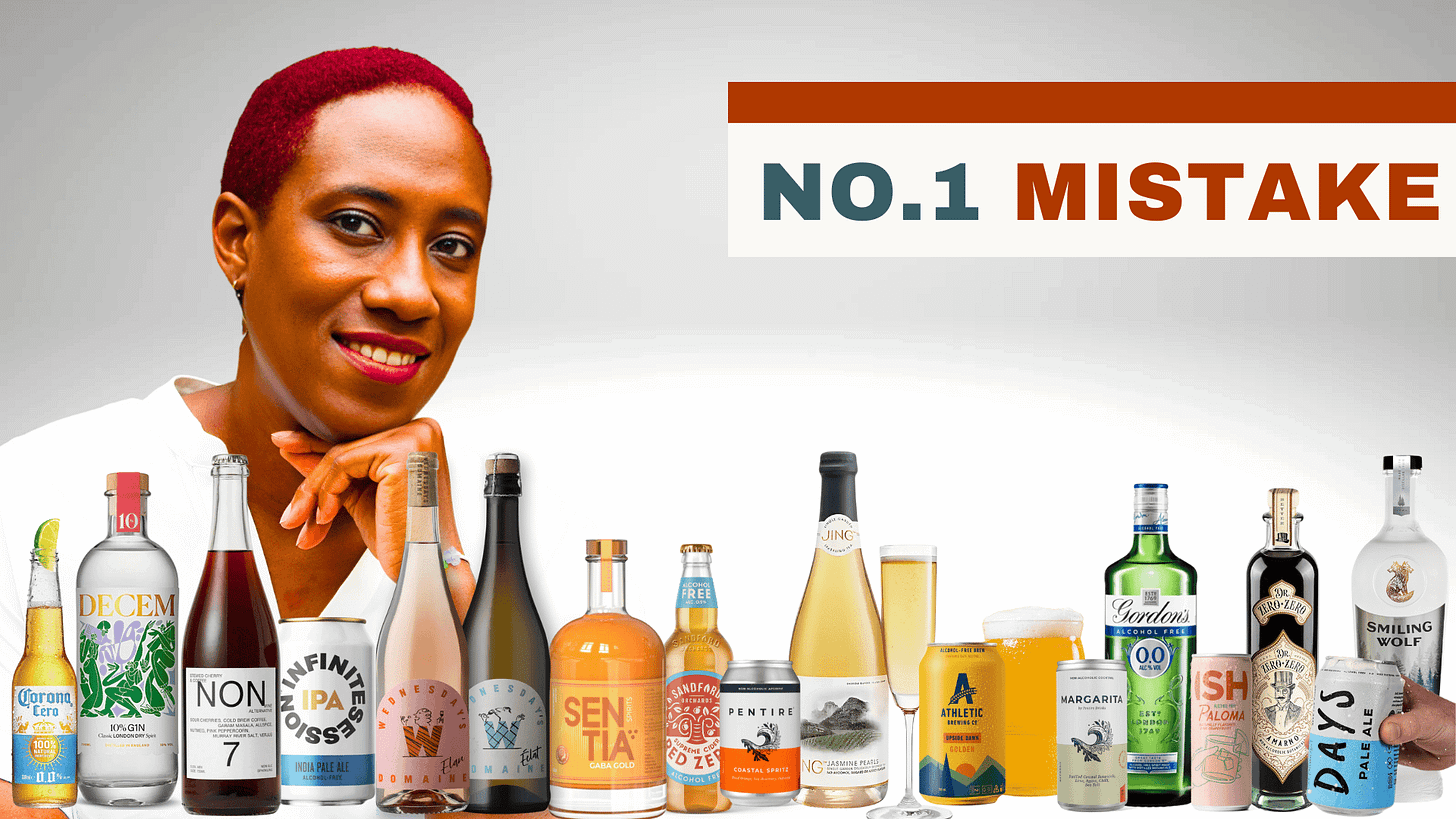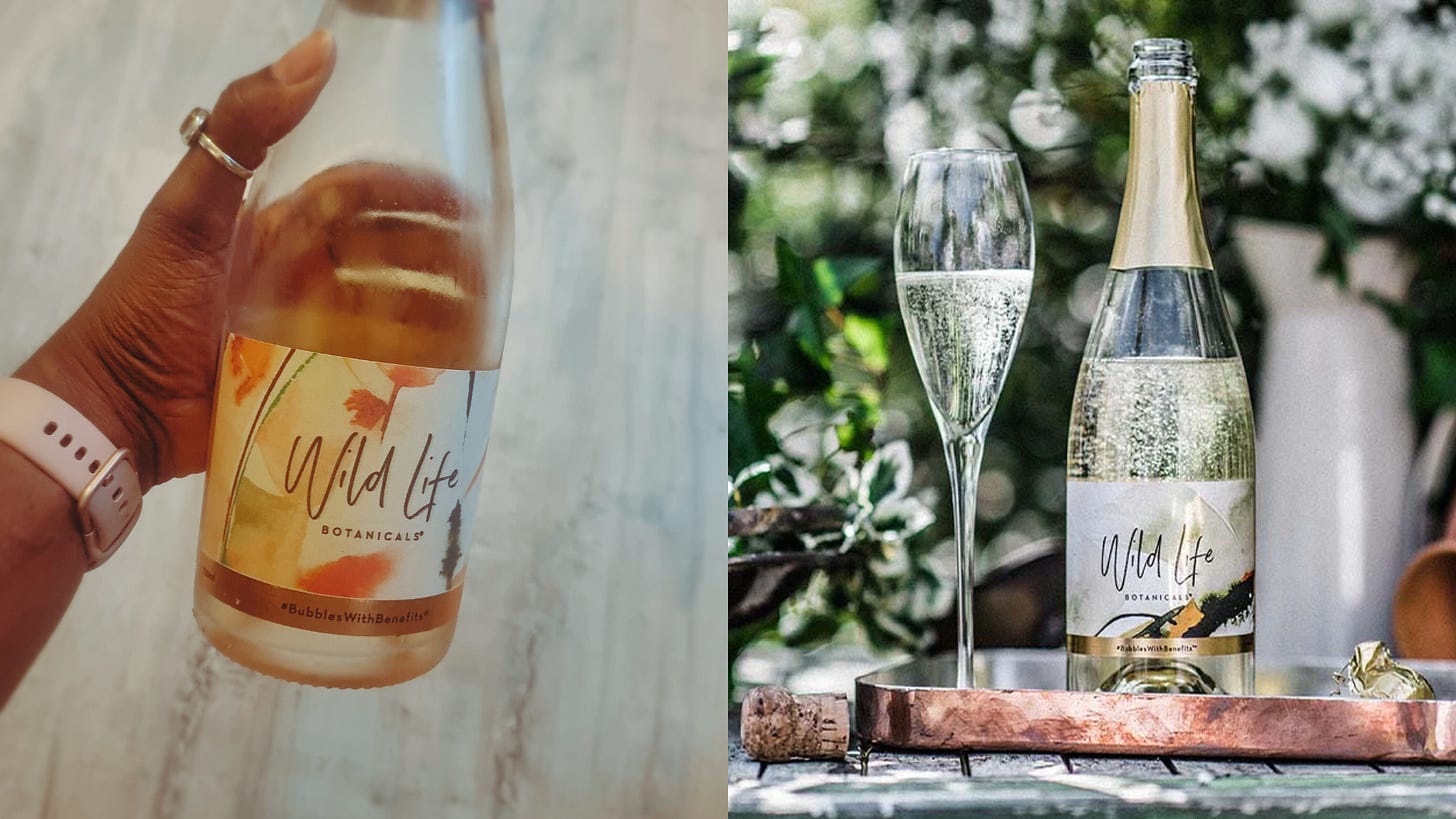The Comparison Trap
(4 min read)
Managing Expectations
In simple terms, the single biggest mistake I see new low, no and light drinkers make when they begin to venture into this whole new world: Expecting alcohol-free drinks to taste exactly like their full-strength counterparts, just without the booze.
I get it, when something's called 'alcohol-free wine' or 'zero-proof gin', your brain latches onto those familiar words and assumes you'll get the same experience. You start to salivate, your taste buds prepare themself for the familiar flavours and taste sensations, your body even begins to prepare to receive alcohol.
And then it doesn't arrive.
What you get is something very different, and so you feel disappointed. Like you've missed out. Like you've been duped and you're not impressed.
Stop hunting for ghosts in your glass
The problem arises when you go into alcohol-free drinks 'comparing' rather than 'appreciating'. Focusing on what's missing rather than what's there; mourning the flavours we can't find instead of exploring the ones we can.
Take wines, for example. Thanks to growing temperatures, wines these days can average up to 14% ABV. Take away 14% of a liquid that you're very used to drinking, and it's not going to taste the same as your favourite Argentinian Malbec or Pinot Grigio. There's just no way around it (yet!).
It's worth remembering, too, that alcohol does far more in a drink than just get you drunk.
It impacts flavour, mouthfeel, texture, balance and finish. Alcohol adds weight, warmth, and sharpness. Without it, drinks can taste lighter, thinner, softer, or even sweeter.
Alcohol changes everything about how a drink feels, tastes, and behaves.
So what's the solution?
Shift your expectations. Stop looking for memories of alcohol and start thinking of these as entirely new drinking experiences.
Think of it like decaf coffee: It's the same basic flavour doing the same basic thing in your mouth, but it's ultimately a different experience because it is ultimately a different product.
Practical Tips for Successful Enjoyment
Start with easy wins. If you absolutely must have something that closely mimics your old drinking habits, start with beer. Alcohol-free beers are the most successful category in low, no and light – and are tipped to become the 2nd largest sub-category in the beer-sphere behind full-strength lager.
Some brands have created alcohol-free beers that taste almost identical to their full-strength versions (everyone has a hand up for Guinness 0.0 at the moment for this very reason). If you want something that closely resembles what you used to drink, beer is your best starting point.
It's also an experimental playground for producers who are not afraid to unleash their creativity with ingredients and production methods that are constantly evolving. Non-alcoholic beer is a fun place to be.
Give wine time and mindfulness. If you're a wine drinker, approach alcohol-free versions expecting them not to taste like wine, especially still versions. Sparkling alcohol-free wines often come closer to their alcoholic namesakes thanks to (some) natural sugars and carbonation that add body and aroma.
With still wines, look for fruit, body, complexity, and length rather than just that familiar wine taste.
Context matters. Don't judge an alcohol-free wine by swigging it straight from the bottle whilst standing in your kitchen on a rainy Tuesday, staring at yet another pile of unwashed laundry waiting to be done. Just like you wouldn't pair a delicate Pouille Fuse with a greasy kebab, these drinks deserve care and consideration.
Check how the producers suggest serving their libations – consider temperature, ice, glassware, and garnish. Some shine with food, others are perfect for summer afternoons, and many are designed specifically for those grown-up drinking occasions where you want something more sophisticated than apple juice but less boozy than a bottle of Malbec.
Be patient with your palate. The first sip that you have might feel a bit 'odd'. But give it time, and you'll be surprised at how happily your palate adjusts to discerning new flavour profiles.
Over time, your taste buds change and regenerate (as I discussed in an episode of the Low No Drinker Podcast a few weeks ago). Every time I taste alcohol now, even an old favourite, it tastes incredibly strong to me because my taste receptors have adapted to alcohol-free alternatives. It's similar to how your tastes recover after quitting smoking.
Remember, there was a time when you didn't like the taste of alcohol. It's a learned behaviour, and as such, you can learn to appreciate low/no in the same way. Give it time, and you might find yourself preferring the cleaner, more complex flavours you can actually taste without alcohol masking everything.
Explore beyond replicas. The low, no and light space offers a raft of brilliant drinks that aren't trying to mimic alcohol at all.
If you're deliberately trying to move away from drinks that remind you of boozier times, this is actually your playground. No rules, no expectations, just pure experimentation. You can mix botanical spirits with kombucha, pair shrubs with sparkling tea, or discover proxies you never knew existed.
These drinks sidestep the comparison trap entirely because they borrow from familiar drink styles to create something new that will blow you away, rather than replacing something old that leaves you feeling blue.
The Bottom Line. How many rubbish beers and crappy wines have you had over the years? Yet you persevered, kept trying different ones until you found your favourites. Give alcohol-free drinks the same opportunity, and you may be pleasantly surprised.
Taste your low, no or light drink for what it is, not for what it isn't. Once you stop expecting a carbon copy and start appreciating what's actually in your glass, you'll open up a whole new world of taste experiences.
Prefer to listen? Catch this episode of the Low No Drinker Podcast ep#68. The No.1 Mistake Made by New Low/No Drinkers
Listen on Apple
Listen on Spotify
This week I’m drinking:
Wild Idol Sparkling Rose - it’s an exceptionally pale pink sparkling wine with high notes of strawberry and just the right amount of fizz.
Billed as ‘Bubbles with Benefits’, it contains Damask Rose, Lemon Balm, Rosemary and Ashwagandha for their antioxidant, anti-inflammatory, general wellness and mood-boosting credentials. Plus Damiana - an aphrodisiac, energy tonic and positive mood-booster. Wink-wink!
Available from Wise Bartender with a 10% discount using my affiliate code LOWNODRINKERMAGAZINE*




